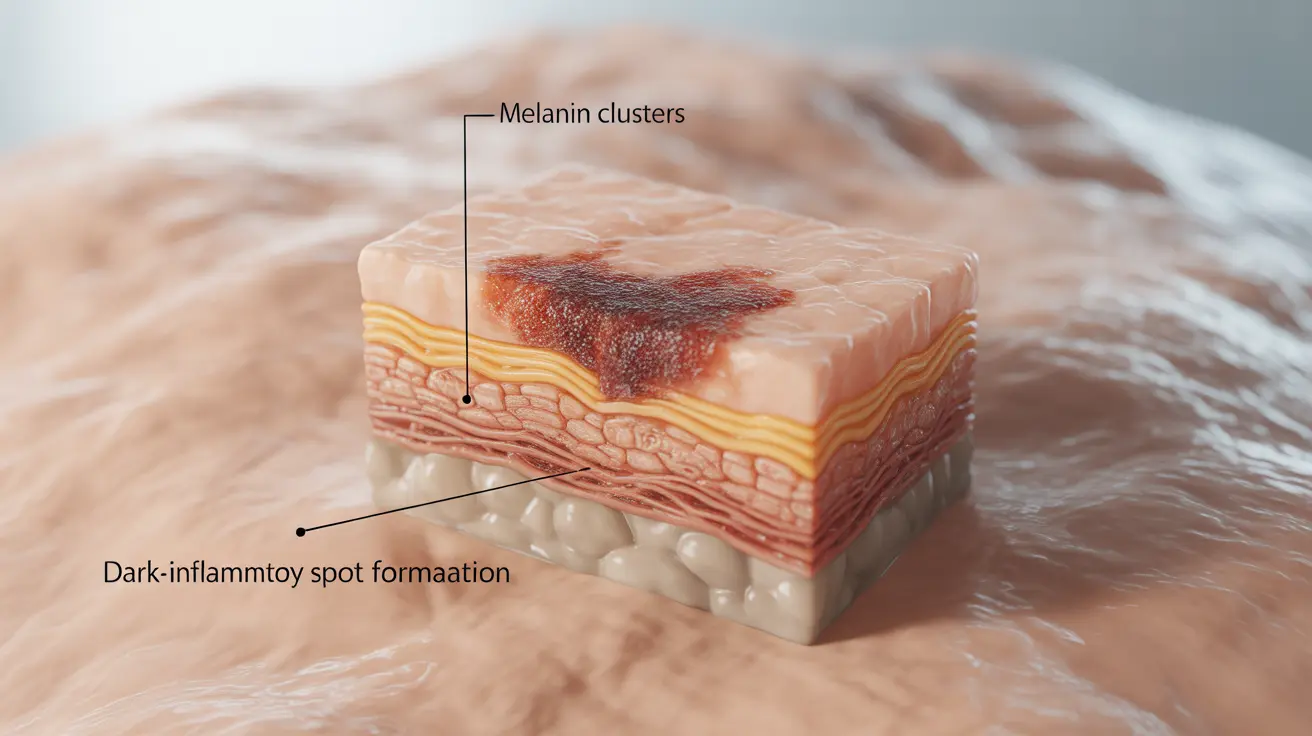Dealing with acne can be challenging enough, but when dark spots appear after breakouts heal, it adds another layer of frustration. These dark patches, known as post-inflammatory hyperpigmentation, occur when acne triggers increased melanin production in the skin. Understanding how to address this common concern can help you achieve clearer, more even-toned skin.
Whether you're dealing with recent hyperpigmentation or long-standing dark spots from past breakouts, there are various treatment options available. This comprehensive guide will explore the causes, treatment options, and preventive measures for acne-related hyperpigmentation.
Understanding Acne-Related Hyperpigmentation
When acne lesions heal, they can trigger an inflammatory response that stimulates melanocytes, the cells responsible for producing melanin. This increased melanin production results in dark spots that can range from light brown to deep purple, depending on your skin tone and the severity of inflammation.
Common Triggers for Post-Acne Dark Spots
Several factors can contribute to the development and severity of post-acne hyperpigmentation:
- Inflammation severity
- Picking or squeezing acne lesions
- Sun exposure during healing
- Skin type and genetic predisposition
- Hormonal influences
Treatment Options for Acne Hyperpigmentation
Over-the-Counter Solutions
Many effective over-the-counter products can help fade post-acne dark spots:
- Vitamin C serums
- Alpha-hydroxy acids (AHAs)
- Kojic acid
- Niacinamide
- Retinol products
Professional Treatments
For more stubborn cases, professional treatments may offer faster results:
- Chemical peels
- Laser therapy
- Microdermabrasion
- Professional-grade brightening treatments
Prevention and Sun Protection
Preventing hyperpigmentation is often easier than treating it. Key preventive measures include:
- Using broad-spectrum sunscreen daily (SPF 30 or higher)
- Avoiding picking or squeezing acne
- Treating active acne promptly
- Using gentle skincare products
- Maintaining a consistent skincare routine
The Role of Skincare Routine
An effective skincare routine for managing hyperpigmentation should include:
- Gentle cleanser
- Exfoliating products (used moderately)
- Treatment serums
- Moisturizer
- Sunscreen during the day
Frequently Asked Questions
What causes dark spots or hyperpigmentation after acne heals?
Dark spots occur when inflammation from acne triggers increased melanin production in the skin. This post-inflammatory hyperpigmentation is the skin's natural response to injury or inflammation, resulting in darker patches where acne lesions once were.
How can I treat acne-related hyperpigmentation at home using over-the-counter products?
You can treat hyperpigmentation at home using products containing ingredients like vitamin C, niacinamide, alpha-hydroxy acids, or retinol. Consistent use of these products, combined with daily sun protection, can help fade dark spots over time.
When should I see a dermatologist for persistent acne hyperpigmentation?
Consider consulting a dermatologist if your hyperpigmentation persists after 3-6 months of consistent over-the-counter treatment, if the dark spots are deeply pigmented, or if they significantly impact your confidence. A dermatologist can provide stronger treatments and personalized solutions.
How does sun exposure affect acne hyperpigmentation and what sunscreen should I use?
Sun exposure can worsen hyperpigmentation and make dark spots more noticeable. Use a broad-spectrum sunscreen with at least SPF 30 daily, even on cloudy days. Look for non-comedogenic formulas to avoid triggering new breakouts.
What is the difference between acne scars and hyperpigmentation, and can both be treated?
Hyperpigmentation is a flat dark spot that results from increased melanin production, while acne scars involve textural changes in the skin. Both can be treated, but they require different approaches. Hyperpigmentation often responds well to topical treatments, while scars may need more intensive procedures like laser therapy or dermal fillers.




